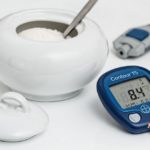Runner’s Nutrition: What to Eat Before, During, and After a Run

Hitting the pavement and pushing your limits feels fantastic, but runners know that true success starts on the plate. Proper nutrition is the foundation for peak performance, injury prevention, and optimal recovery. This guide will equip you with the knowledge to fuel your runs effectively, from pre-run prep to post-run refuel.
By following these guidelines and tailoring them to your individual needs, you’ll be well on your way to achieving your running goals while feeling your best. So, lace up your shoes, grab this guide, and get ready to run!
Also Read: Importance of Vitamin D
What to Eat Before a Run
The ideal pre-run meal timing depends on the length and intensity of your run. Here’s a general guideline:
- For runs longer than 90 minutes: Aim to eat a complete meal 2-3 hours before your run. This allows for proper digestion and ensures your body has sustained energy.
- For runs between 60-90 minutes: A smaller meal or a larger snack 1-2 hours beforehand is sufficient.
- For short runs (less than 60 minutes): If you’re running first thing in the morning or on a relatively empty stomach, a small, easily digestible snack 30-60 minutes before can provide a quick energy boost.
Focus on a balanced meal that prioritizes carbohydrates for sustained energy, along with some protein and healthy fats for satiety and muscle support. Here are some key players:
Carbohydrates: These are your body’s primary fuel source during a run. Choose complex carbs that release energy slowly, such as:
- Oatmeal
- Whole-wheat toast
- Bananas
- Sweet potatoes
- Brown rice
Protein: A moderate amount of protein helps with muscle repair and keeps you feeling fuller for longer. Consider:
- Greek yogurt
- Eggs
- Nut butter (in moderation)
- Lean meats (for larger pre-run meals)
Healthy Fats: Include a small amount of healthy fats to slow down digestion and aid in nutrient absorption. Good options include:
- Avocado
- Nuts and seeds (in moderation)
- Olive oil (drizzled on toast)
Some foods can wreak havoc on your run. It’s best to avoid:
- High-Fat Meals: Fatty foods take longer to digest and can cause stomach discomfort while running.
- High-Fiber Foods: While fiber is essential overall, excessive amounts right before a run can lead to bloating and digestive issues.
- Spicy Foods: Spicy dishes can irritate your stomach and cause heartburn during your run.
- Sugary Drinks and Processed Foods: These provide a quick energy spike followed by a crash, leaving you drained mid-run.
Also Read: Super Seeds for Fitness
What to Eat During a Run
Short Runs
For shorter runs, your focus should be on staying hydrated. Water is usually all you need to replenish fluids lost through sweat. However, if you’re running in hot weather or sweating heavily, consider an electrolyte drink to replace essential minerals like sodium and potassium.
Long Runs
For longer runs, your body will require additional fuel to maintain performance and prevent bonking (hitting the wall). Here are your key options:
Quick Carbs: These provide a readily available source of energy for your working muscles. Popular choices include:
- Energy gels
- Sports chews
- Sports drinks
Aim to consume quick carbs every 30-45 minutes during your long run.
Light Snacks: Some runners prefer small, easily digestible snacks for sustained energy. Good options include:
- Bananas
- Energy bars (choose ones with simple ingredients and avoid high fiber)
Hydration is crucial throughout your run, regardless of distance. Here’s a breakdown of the two main options:
- Water: Water is still the foundation of hydration for most runs, especially shorter runs. Aim to drink small sips frequently, rather than guzzling large amounts at once.
- Electrolyte Drinks: For long runs, especially in hot or humid conditions, electrolyte drinks can be beneficial. They replenish electrolytes lost through sweat, helping to prevent dehydration, muscle cramps, and fatigue.
Remember: Experiment in training to find what works best for you and adjust your fueling strategy based on weather conditions and run intensity.
What to Eat After a Run
The window of 30-60 minutes following your run is critical for jumpstarting recovery. During this time, your muscles are exceptionally receptive to nutrients that will replenish glycogen stores and aid in muscle repair. Aim to consume a small meal or snack that incorporates the following:
Protein: Protein is essential for repairing and rebuilding muscle tissue broken down during your run. Target 20-30 grams of protein from sources like:
- Chicken
- Tofu
- Greek yogurt
- Eggs
- Protein shakes (whey or plant-based)
Carbohydrates: Replenish your glycogen stores with easily digestible carbohydrates like:
- Sweet potatoes
- Brown rice
- Whole-wheat pasta
- Fruits (banana, berries)
Healthy Fats: Include a small amount of healthy fats for satiety and improved nutrient absorption. Good choices include:
- Avocado
- Nuts and seeds
- Olive oil
Don’t forget to rehydrate after your run! Sweat loss can lead to dehydration and electrolyte imbalances. Here’s how to replenish fluids:
- Water: Water is still essential for rehydration after your run.
- Electrolyte Drinks: Electrolyte drinks can be helpful, especially after long runs or runs in hot weather, to replace electrolytes lost through sweat.
Remember: Listen to your body’s cues. If you’re not feeling particularly hungry after a short run, prioritize rehydration. As your runs get longer and more intense, you’ll likely find yourself craving the nutrients to support recovery.
Nutritional Supplements for Runners
While a well-balanced diet should provide most runners with the nutrients they need, certain supplements can be beneficial in specific situations. However, it’s crucial to approach supplements with caution and prioritize food first.
Common Runner Supplements
- Branched-Chain Amino Acids (BCAAs): These promote muscle recovery, but research shows limited benefits for most runners. Focus on getting enough protein from your diet first.
- Creatine: May enhance performance in high-intensity activities, but more research is needed for endurance athletes. Consult a doctor before considering creatine.
- Omega-3 Fatty Acids: Offer anti-inflammatory benefits that can aid recovery, but most runners get enough from fatty fish or flaxseed.
Essential Vitamins and Minerals
- Vitamin D: Important for bone health and muscle function. Deficiency is common, so consider getting your levels checked and supplementing if needed.
- Iron: Crucial for oxygen transport. Deficiency is more common in female runners. Consult a doctor to check iron levels before supplementing.
- Calcium: Essential for bone health. Most runners can meet needs through diet, but dairy-restricted runners may benefit from supplements.
Generally, a balanced diet that incorporates a variety of whole foods should provide adequate nutrition for runners. However, there might be times when supplements can be helpful:
- Diagnosed nutrient deficiencies: If a doctor diagnoses a deficiency in a specific vitamin or mineral, a supplement can be beneficial.
- Limited dietary choices: Runners with restricted diets (vegan, vegetarian) may need to supplement with specific nutrients like iron or vitamin B12.
- High training volume: Runners with very high training volumes might benefit from additional protein or specific supplements like creatine, but consult a doctor or registered dietitian for personalized advice.
Also Read: Tips for Running Without Back Pain
In Crux
You now have a solid foundation in runner’s nutrition! Remember, these are general guidelines, and individual needs can vary. Experiment in training to discover what works best for you. Pay attention to how different foods affect your energy levels and performance, and adjust your pre-run, during-run, and post-run meals accordingly.
Running is a fantastic journey, and proper nutrition is your fuel. By fueling your body wisely, you’ll unlock your potential, optimize recovery, and achieve your running goals. Keep these tips in mind, personalize your approach, and happy running!
How much did you like Our detailed Best Nutrition Guide for Runners? Please share your view in the comment box. Also, please share these Blogs with your friends on social media.
Recommended











